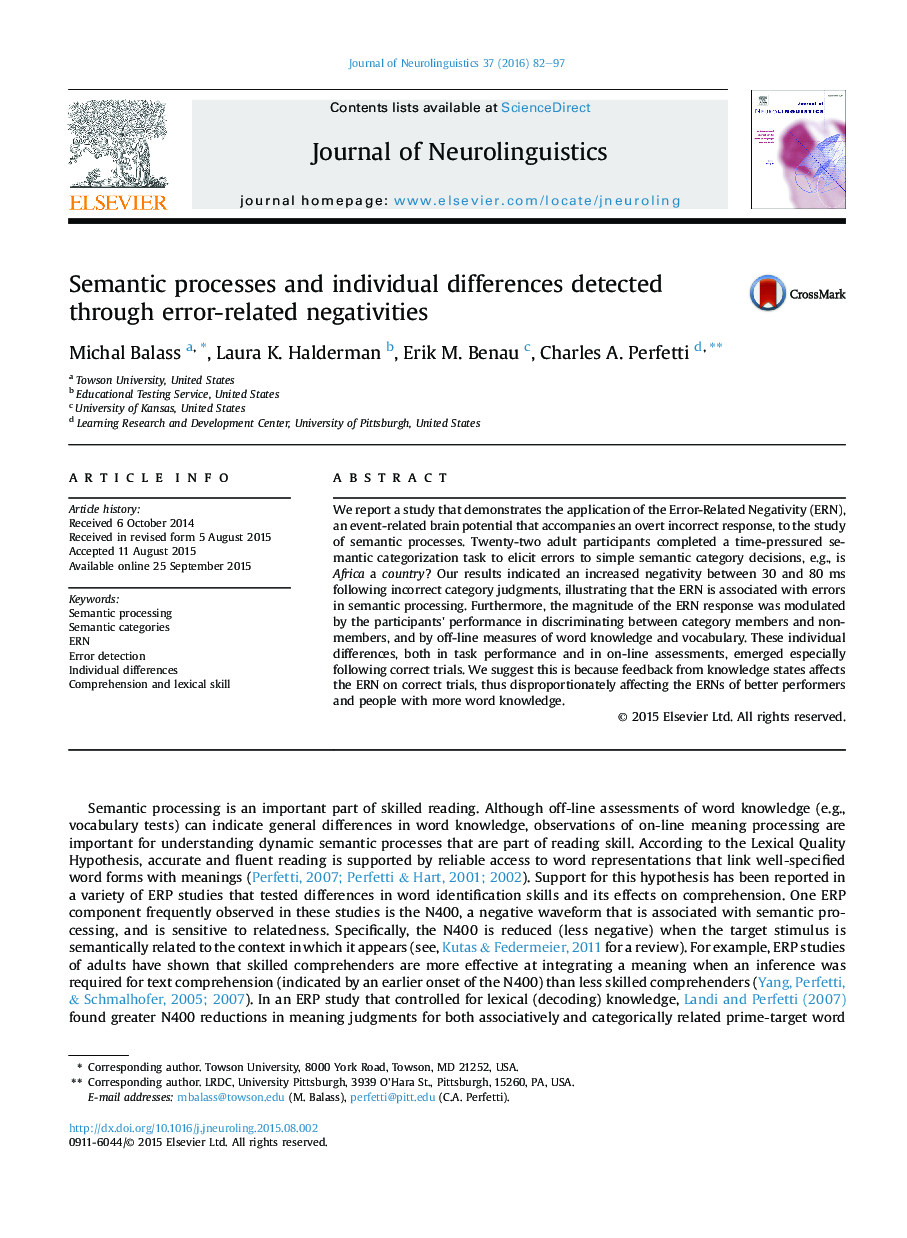| Article ID | Journal | Published Year | Pages | File Type |
|---|---|---|---|---|
| 911771 | Journal of Neurolinguistics | 2016 | 16 Pages |
•We provide empirical evidence to support the conflict monitoring hypothesis of the ERN.•The ERN can be elicited in a semantic categorization task as an index of semantic processing.•The ERN amplitude reflects individual differences in performance on semantic categorization accuracy.
We report a study that demonstrates the application of the Error-Related Negativity (ERN), an event-related brain potential that accompanies an overt incorrect response, to the study of semantic processes. Twenty-two adult participants completed a time-pressured semantic categorization task to elicit errors to simple semantic category decisions, e.g., is Africa a country? Our results indicated an increased negativity between 30 and 80 ms following incorrect category judgments, illustrating that the ERN is associated with errors in semantic processing. Furthermore, the magnitude of the ERN response was modulated by the participants' performance in discriminating between category members and non-members, and by off-line measures of word knowledge and vocabulary. These individual differences, both in task performance and in on-line assessments, emerged especially following correct trials. We suggest this is because feedback from knowledge states affects the ERN on correct trials, thus disproportionately affecting the ERNs of better performers and people with more word knowledge.
